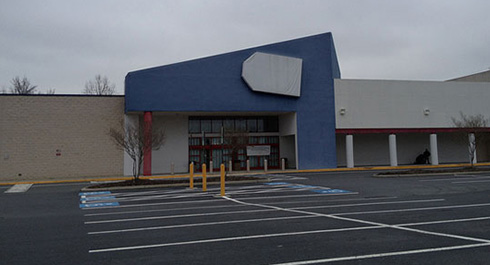
I was reading this article about how CVS has decided to ditch selling tobacco products (which I support wholeheartedly), and how supposedly such a radical business philosophy change came about on the idea that Amazon is essentially after their market. Not going to lie, that’s a terrible description, and admittedly, I stopped really reading it once the initial thought popped into my head upon seeing the line that was along the idea that Amazon was basically killing brick and mortar stores left and right.
Now I can’t say if Amazon is attempting to take over the world of consumer commerce with malicious global domination intentions, but for all intents and purposes I do like Amazon a lot, in terms of what they provide. These days, there’s pretty much nothing out there that I can’t see, and think think “hm, I wonder what it costs on Amazon,” find it on Amazon, cheaper at that, and oho, it’s also Prime eligible. It’s the epitome of convenience and cost-effective efficiency these days for things that you do not need to have in your hands in that very second.
Regardless though, it did get me thinking about a theoretical world in which Amazon has successfully defeated the brick and mortar stores. We’re already kind of witnessing the demise of the electronics store, but given the fact that Amazon also has a massive quantity of goods such as clothing and household wares, who’s to say that the continued growth of Amazon won’t basically put entire shopping malls out of existence in the future too?
What would the United States be like if the vast majority of brick and mortar stores were to ultimately go under? For simplicity sake, we’ll keep grocery stores, markets and drug stores around, because those are typically things where expirations and shelf life play a role in their necessity. But with Amazon in control of the entire marketplace when it comes to non-edible/consumable goods, what would the country be like?
For starters, my initial thought would be that there would have to be massive amounts of land alleviated by the lack of necessity of entire shopping malls, gigantic Best Buy stores, and quite possibly the Targets and K-Mart type stores that don’t happen to also double as grocers. But then I’m thinking that with the growth of Amazon, there would be a necessity for a lot more warehouses and stock centers for Amazon to accommodate the massive growth of commercial goods that they would have to ship out at pretty much all times of the day. From an aesthetic point of view, I’d have to imagine that the country would look pretty drab if all across the landscape were gigantic rectangular warehouses strewn across the plains, with the Amazon smiley face logo on them, as the origins of where all our products come from. The remaining space freed up by the demise of brick and mortars would be nice to backfill with nature and greenery, but my pessimistic outlook on the world leads to believe that they’d be snatched up to be turned into gaudy high-rise buildings where the population could be even more cramped and condensed.
I think the biggest change to the country would most definitely be a socially. With the lack of brick and mortar stores, the variety of places in which people could get basic, minimum wage, blue-collar work would sink dramatically, and it would be a country where getting your foot in the door with your local Amazon warehouse would be the likeliest option. With no more malls, the cashier at Hot Topic couldn’t make friends with the assistant manager at Wet Seal, and they’d never get to talk about the hot bus boy at Bennigan’s. The employees at Best Buy have no more hhgregg or Fry’s stores to think they’re better than. When everyone’s ultimately an employee of Amazon, the social hierarchy essentially turns to pot, and the whole place feels really diluted and lacking in variety and options.
And for the sake of the consumers, nobody’s going out anymore. Aside to get food, dine out, there’s even lesser reasons to leave the house. The concept of “going out” takes a pretty big hit, it’s pretty much local attractions, dining out and movie theaters; that is, until Amazon streaming services find a way to eat into the movie industry and phase them out too. Society becomes even more reclusive, because people don’t have to leave the house to shop for things anymore, and then everyone becomes even more reliant on the internet to communicate with others, and people hardly see each other face to face outside of Skype and cherry-picked selfie JPEGs.
So basically if brick and mortar stores were to ultimately crumble under the continuous growth of Amazon, at least in the case of the United States, the landscape would change somewhat, with dead stores being replaced by giant warehouses, possibly some contributions back to nature and likely more housing to saturate the population with. But the biggest changes would ultimately be social, with people needing even less to go out and be a part of the commercial world, when everything is alternatively available with a few mouse clicks and a credit card number on Amazon.com.
Yeah, my idea of an Amazon-dominated world does seem a little outlandish and dystopian in a way. But from a social standpoint, I kind of hope the Amazon overlords don’t go too nutzo with their aspirations for taking over the world, and consider the necessity for actual human interaction for the sake of humanity.
